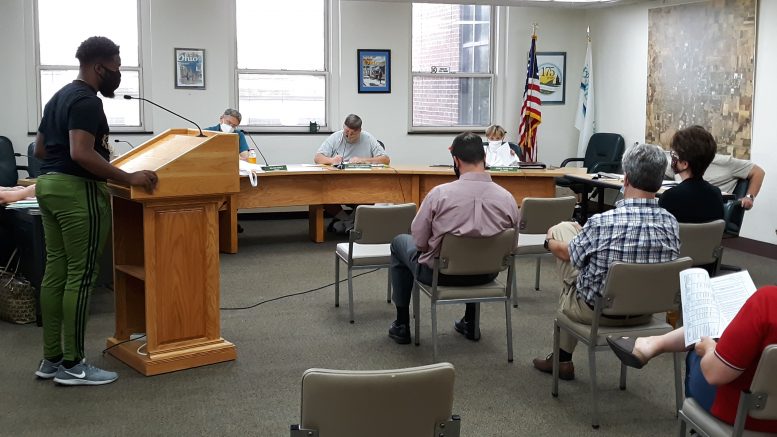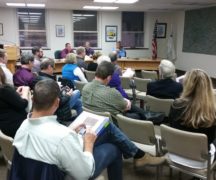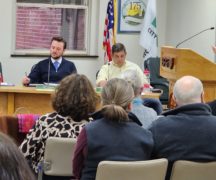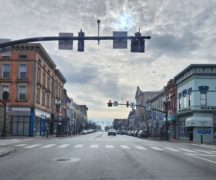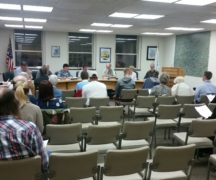By JAN LARSON McLAUGHLIN
BG Independent News
If someone broke into Bowling Green City Council member John Zanfardino’s home, he would call the police. But blocks apart in the same community, calling 911 is not an automatic response for Anthony King.
“I would not call a police officer if someone broke into my apartment,” King said Monday evening during a Bowling Green City Council meeting.
King spoke of a different pandemic faced by Black residents.
“Black people are scared across America. Black people are scared in the Bowling Green community,” he said.
King said he was speaking on behalf of other Black residents, who worry about shopping at the market, worry about walking down the street, and worry about speaking to City Council.
Black people do not experience Bowling Green in the same way as white people, he said.
“There are people in your community that don’t have that luxury, and that needs to be addressed,” King said.
King and others recently formed the group called BRAVE – Black Rights Activism, Visibility, Equity. Through that organization, members plan to push to make sure Black people have space in the Bowling Green community.
“Frankly, we feel like the Bowling Green community has not tried hard enough,” King said.
So on Monday evening, City Council made an effort to try harder. Council member Sandy Rowland introduced a resolution affirming council’s commitment to racial equity. The resolution has specific goals that are attainable, she said.
Council unanimously passed the resolution, which states the following:
- City Council pledges to listen and learn, in order to take meaningful action on racial injustice to ensure that people of color are treated equally in every encounter with the city and in receipt of city services.
- City Council seeks to increase diversity present throughout all city departments and divisions.
- City Council pledges to ensure that there are transparent processes across all city government for investigating employee misconduct and employing progressive discipline.
- An existing police officer will be assigned the duty of liaison to communities of color. Just as the police division assigns liaisons to school-age children and other community groups, outreach to communities of color should be formalized.
- The Human Relations Commission will create a series of city-sponsored “Listen & Learn” events, with the goal of educating city staff and the public on the history of racism and furthering the discussion on these issues within our community.
The resolution states that institutional and structural racism has plagued this country since its founding, and that there is a cry across America for public officials to take bold action. The wording acknowledges that Bowling Green is not immune from systematic racism.
“I’m proud to be part of this resolution,” said council member John Zanfardino, who helped write the resolution with Rowland and council member Rachel Phipps.
“We’re at a really interesting time in the U.S., and we certainly have a long way to go for racial justice in the U.S.,” Zanfardino said. He said he was particularly proud of the clause asking the police division to create a liaison for people of color in the community.
“The experience we have is not shared by people of color,” Zanfardino said. “That’s their reality.”
Council member Neocles Leontis said the resolution is “an important first step” that must be fleshed out with concrete actions.
“Their experience is different,” Leontis said. “We must listen and respect, and not discount what we have heard.”
Though the vote to pass the resolution was unanimous, council member Bill Herald voted against rushing it through on Monday evening. He said giving it more than one reading could have given more time for public input.
“But all in all, it is a good step forward,” Herald said.

